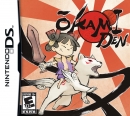The term comes in two distinct contexts. Unless the distinction isn't made, and in that case it is assumed to be a flop on both counts. The two distinct usages refer to financial flops and critical flops. A financial flop means that the game didn't generate the revenue to offset development/marketing costs. While a critical flop means that the game was so poorly received by reviewers that it is viewed as substandard.
In the first case it can be hard to discern whether a game is a financial flop given that we don't necessarily know the costs associated with bringing it to the market, but that doesn't mean we can't use common sense rules of thumb to reach a consensus. A low end game that isn't shovel ware probably needs to sell a couple hundred thousand units in its first few months. While a high end game probably needs to sell at least a million in that time frame. If it succeeds even if the expectations were high it cannot be a financial flop. That doesn't mean it would be unfair to call it a disappointment.
In the second case a meta rating below seventy probably will suffice. Technically average should be a score of fifty out of a hundred, but reviewers grade on a curve, and we as observers must do the same. This obviously doesn't apply to shovel ware, because frankly those suppliers don't give a rats ass about making quality goods in the first place, and nobody is surprised when they churn out another piece of crap. However most competent developers expect to get a better then average score. Well they at least aim for that goal.
This all means we can have contradictions, but they are only problematic if people speak in general terms when they should limit themselves to specific terms. A highly praised game that is a money pit isn't a total flop. It is just a financial flop. Just as a poorly received game that sells through a large volume of units can't be a total flop. It is just a critical flop.
Anyway ninety five percent of the time the word is misappropriated, because people think it is some next level cold ass shit to say in the heat of a discussion. They think it gives weight to what they are saying. When all it really does is make them sound like a zealot trying to score points. Rather then someone interested in putting a thing in its proper context.
I don't have a problem with people saying that something was a disappointment, but a Flop is something quite extraordinary. There aren't a lot of games that flop in a given year, and when it does happen. They deserve a very special classification. When a developer creates a game that totally flops it is something that has real profound consequences. Especially if it was a big ambitious title.














































